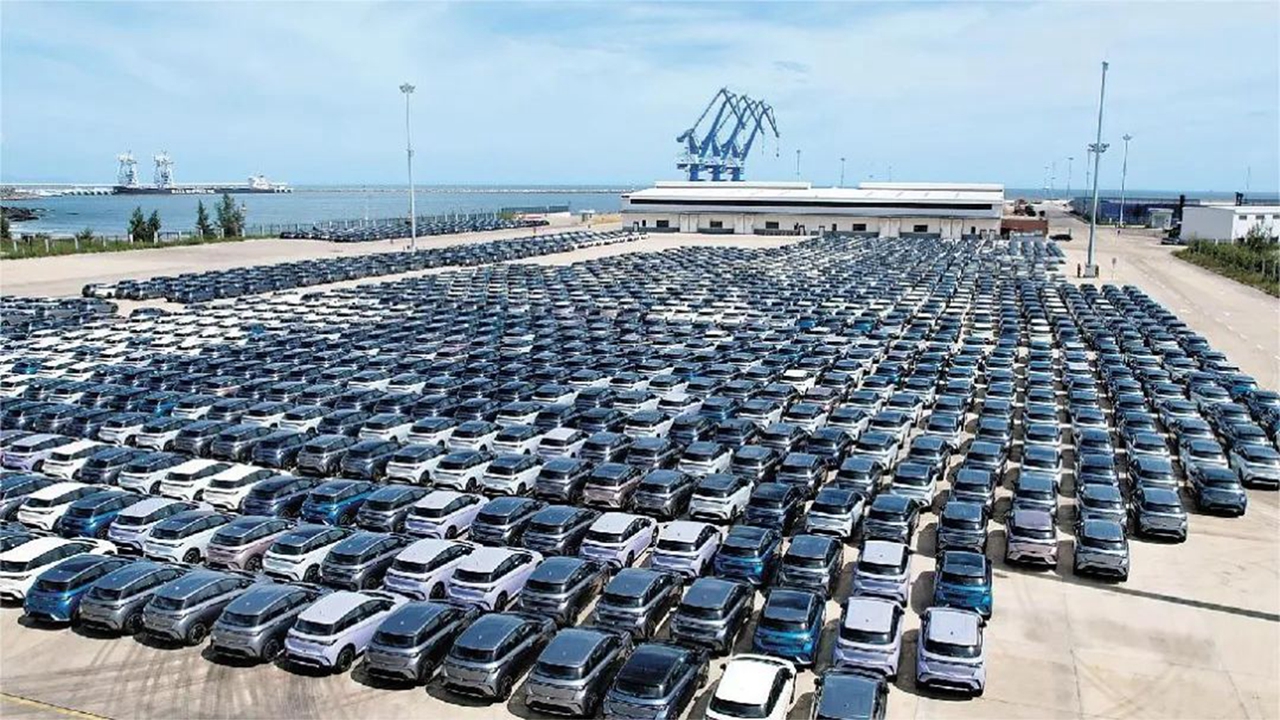US protectionism may aggravate climate crisis
Writer: Lin Min | Editor: Zhang Chanwen | From: Shenzhen Daily | Updated: 2023-12-25
The Biden administration is discussing plans to impose higher tariffs on Chinese clean energy products, including electric vehicles (EVs), in an attempt to boost U.S. manufacturers against lower-priced Chinese exports, the Wall Street Journal reported last week.
This smacks of the “beggar thy neighbor” policy prevalent during Europe’s era of mercantilism from the 16th to the 19th century. Adam Smith, the Scottish philosopher who is also considered to be the founder of modern economics, said the doctrine of mercantilism taught that nations should beggar all their neighbors to maximize economic gains. Under the “beggar thy neighbor” policy, one country attempts to remedy its economic problems by means that worsen the economic problems of its trading partners such as raising tariffs, devaluing its own currency and imposing trade barriers.

More than 1,500 new energy vehicles produced by BYD are ready to be shipped at Xiaomo Port in Shenshan Special Cooperation Zone in September. Courtesy of Shenzhen Evening News
The U.S., which claims to be a champion of free trade and free market, has a long history of taking “beggar thy neighbor” measures against major trade partners, including allies.
The Smoot-Hawley Tariff Act in 1930, aimed at protecting American farmers and industry, raised the average tariff by some 20%. In response, other countries retaliated with their tariffs, leading to a sharp reduction in international trade. This contributed to the deepening of the Great Depression. U.S. imports from and exports to Europe fell by some two-thirds between 1929 and 1932, while overall global trade declined by similar levels in the four years when the legislation was in effect, according to Britannica.
In 1981, under pressure from the Reagan administration, Japan “voluntarily” limited the number of cars it sold to the U.S. market. Japan accepted restrictions without retaliating because it depended on the U.S. for military security, but that doesn’t mean the restrictions were successful. The U.S. ended up importing more cars from South Korea.
The Biden administration is targeting green technology as U.S. electric vehicles and other clean energy products are not competitive compared with Chinese products, in terms not only of prices, but also other aspects, such as user-friendly designs, functionality and battery performance.
Smith believed that long-term gains from free trade would far outweigh the short-term benefits that might be derived from the “beggar thy neighbor” policy advocated by the mercantilists.
Alan Deardorff, an economics professor at the University of Michigan, sees the “beggar thy neighbor” practice as an example of the prisoner’s dilemma known from game theory: Each country individually has an incentive to follow such a policy, thereby making everyone, themselves included, worse off.
Undoubtedly, any U.S. tariff hike will trigger Chinese countermeasures. Chinese battery manufacturers and EV makers are also setting up factories overseas to fend off protectionist measures. But this won’t be smooth sailing. The U.S. has “expressed concerns” with Mexico after three of China’s largest EV makers, including Shenzhen’s BYD, were reported to be preparing to build factories south of the U.S. border, according to the Financial Times.
Biden’s latest tariff plan, if adopted, would stifle competition and result in stagnant technological innovation and cost reduction among U.S. manufacturers. Higher tariffs will make EVs, solar panels and other clean energy products more expensive in the U.S., thus impeding the transition to green energy. It will also disrupt the climate change cooperation between both countries, dealing a blow to global efforts to tackle climate change.
In theory, both China and the U.S. will benefit from free trade, by which the comparative advantages of China’s green energy products and America’s semiconductors will enable consumers in both countries to have access to the best products at the lowest possible costs. However, a superpower bent on preempting challenge from any foreign country to its industries makes trade wars and tension inevitable.
BYD and other enterprises in Shenzhen’s fast-growing new energy industrial chain will have to cope with tariffs and trade barriers by setting up overseas factories and diversifying their markets. Adversity will only make them even stronger, like the Chinese chipmakers who have made initial breakthroughs despite the U.S. stranglehold.
(The author is a deputy editor-in-chief of Shenzhen Daily.)